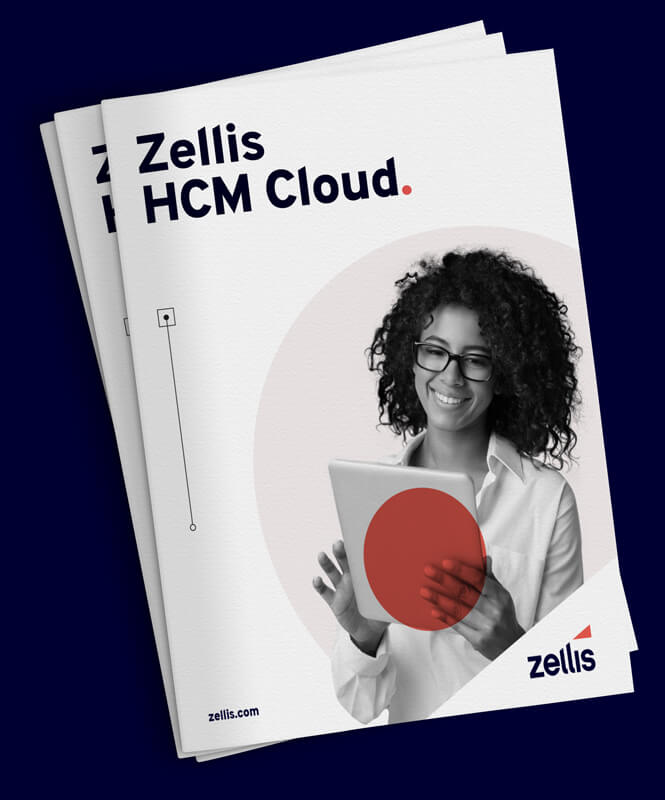A spate of new laws and policies are changing the landscape of payroll in Ireland. For example, statutory sick pay and gender pay gap reporting have arrived, while pension auto-enrolment is imminent.
Here’s a roundup of some of the most important changes, to keep you up-to-date and compliant.

What’s changed for payroll in Ireland?
Now let’s take a closer look at some of the biggest big game-changers.
Gender pay gap reporting

Date: Passed July 2021 (First deadline December 2022)
Context: Lawmakers signed the Gender Pay Information Act 2021 into law in July 2021. The deadline for employers with more than 250 staff to report was in December 2022. Companies with more than 150 employees will need to report in 2024, and all those with over 50 in 2025.
Outcome: The Act places four key obligations on employers:
- Gather relevant gender-based pay data
- Publish the results
- Draft a statement explaining why a gender pay gap exists and how they intend to address it
- Post the statement on the company website
Be sure to avoid these gender pay gap reporting pitfalls.
(Enhanced) Illness Benefit

Date: 2020 – 2022
Context: Employees who tested positive for coronavirus or were told to self-isolate by a doctor were eligible to apply for Covid-19 enhanced illness benefit from the early days of the pandemic.
Outcome: On 1 February 2022, the scheme was extended until 30 June. Under the rules, anyone with a Covid-19 diagnosis was paid the benefit for up to 10 weeks. If they held a medical certificate for less than 10 weeks, they were paid for period during which the certificate applied. The scheme has now ended.
But from 1 March 2021, the waiting period for employees to receive payments, whether enhanced or not, was halved to three days. This means payment now starts on an employee’s fourth day of sickness absence as opposed to their seventh. To receive Illness Benefit, employees must be under 66, have made enough contributions into the Pay Related Social Insurance (PRSI) scheme, and not be eligible for Statutory Sick Pay (see below).
Income tax, benefits, and social insurances
Date: Announced 27 September 2022
Context: Various changes to income tax, PRSI and Universal Social Charge (USC) levels were made in the 2023 Budget, which was announced last September.
Outcome: Income tax rates stayed the same – at 20% and 40%. But the standard rate income tax band increased by €3,200 to €40,000 for a single person and €49,000 for married couples with one earner. In addition:
- Personal Tax Credits, Employee Tax Credits and Earned Income Credits have risen by €75 to €1,700
- Foreign Earnings Deduction relief has been extended until the end of 2025
- The weekly income threshold for the higher rate of employer’s PRSI increased from €410 to €441 to ensure there is no incentive to cut working hours for full-time employees on the increased minimum wage of €11.30 per hour (if aged over 20, from 1 January 2023)
- The ceiling of the 2% USC band rose by €1,625 to €22,920 to ensure that the salary of a full-time worker on the minimum wage will not fall into the USC’s higher rates
- The Small Benefit Exemption doubled from €500 to €1,000 and will be applied to the 2022 tax year. Employers can give two vouchers or gifts to their staff during each tax year
Statutory Sick Pay

Date: Effective from 1 January 2023
Context: The Sick Leave Act became law on 20 July 2022, following government recognition during the pandemic that low-income workers needed more financial security. Only 44% of employers had been found to offer occupational sick leave. As a result, Ireland’s first ever Statutory Sick Pay (SSP) scheme came into law on 1 January 2023.
Outcome: The SSP scheme will be rolled out in phases over the next four years. The aim is to give those employers not already providing occupational sick leave enough time to budget to cover the additional costs.
To be eligible for statutory sick leave, staff must have worked for their employer for at least 13 weeks. They also need to obtain a medical certificate from their GP to say they are unfit for work and when they are likely to return.
Employers, on the other hand, must keep appropriate employee paid sickness absence records for four years. Failure to do so will lead to a fine of up to €2,500.
Learn more in Statutory sick pay in Ireland: A guide for payroll and HR
Pension auto-enrolment

Date: End of 2023
Context: After 25 years of debate, Ireland will roll out its first ever workplace pension scheme in 2023. The first contributions will be made in 2024, with increases phased in over the next 10 years.
Outcome: Some 750,000 private sector employees who are not currently members of an occupational pension scheme, are aged between 23 and 60, and earn more than E20,000 per annum, will be enrolled automatically into the new scheme.
Opting out is possible after six months, but staff will be automatically re-enrolled after two years, although they can opt out again after a further six months. Opt-in, on the other hand, is voluntary for staff on lower wages or outside of the designated age bracket.
Employees will initially pay 1.5% of their gross income into their pension pot, which will be matched by their employer. The state will pay an additional €1 for every €3 saved. Contributions will increase every three years by 1.5% until hitting a total of 6% of an employee’s gross income.
Get up to speed with Ireland pensions auto-enrolment: Guide for payroll and HR
Zellis Ireland has your payroll compliance covered
We handle payroll, risk, and compliance as managed services for leading organisations in Ireland. Learn more here.
















